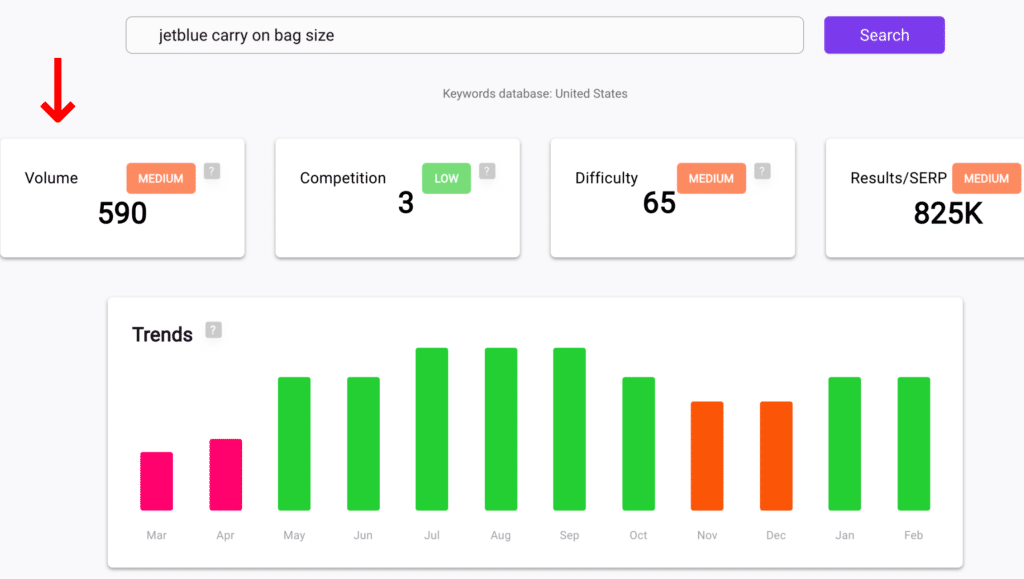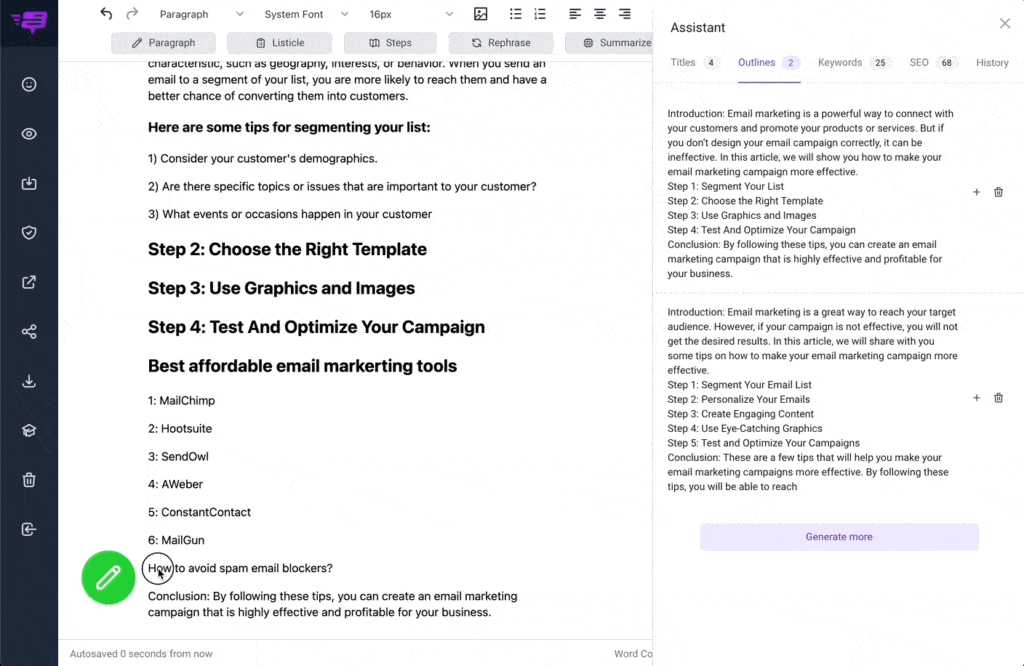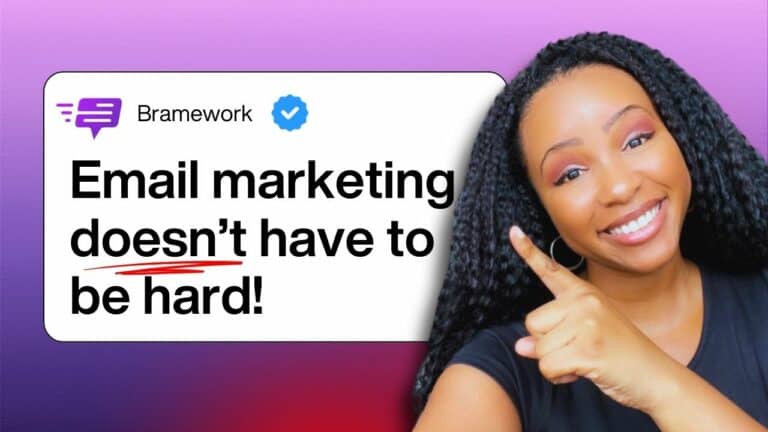🔥 FLASH SALE: Blog to Video is HERE! Plus Analytics AI & Chat Builder. Only 50 licenses left at $179 👉 Claim Your Lifetime Deal!
What is an Editorial Content Strategy and Why Do You Need it for YOUR Blog?

Having an editorial content strategy is key for the growth of your blog, website or brand this year.
There are good and bad habits you should form when It comes to blogging.
It’s important that your content be researched so that it fits your brand and your audience naturally. This takes strategy.
I’m going to cover the definition of a digital content strategy, why you need it and how to put a solid plan in place for growth.

THIS POST MAY CONTAIN AFFILIATE LINKS. PLEASE READ THE DISCLOSURE FOR MORE INFO. Which means if you click on certain links, Bramework may receive a small commission at no additional charge to you.
What is an Editorial Content Strategy?
The definition of a content strategy is the planning, creation, delivery, and management of all content. No pressure.
If you’re going to create amazing content for your blog, you will need to brainstorm first. Connecting with your brand, your mission and your goals are all very important before you start a blog.

My advice is to take it step-by-step!
Find out your target audience, research what they want to learn, gather some topic ideas around it. It doesn’t have to be complicated, however, it does have to be researched.
The purpose of a content media strategy is to create meaningful and sustainable content that really speaks to your audience.
Your mission should be showcased, get your expertise out there and be sure to include your brand. Your content represents your online identity to the social world.

But first, I wanted to back it up with some facts about good content. According to Quoracreative, these facts about content marketing may make you rethink your strategy:
- On average, 4 out of 5 Americans are online daily reading blogs. Globally, almost 4.5 billion people.
- Content marketing ROI can be up to three times as compared to the paid search.
- Content marketing on average is 60% cheaper than other marketing techniques.
- 60% of companies are now looking at outsourcing their content marketing.
- 3 out of 4 consumers prefer informative content over an advert to learn about a product or brand.
- 4 out of 5 consumers end up with a positive view of a brand after learning about it via helpful content.
Don’t be shy to rely on tools for keyword analysis, blog formatting, and content trends!

Also, you don’t forget about your entire social networking system. Having the research to back up an editorial content strategy is a solid way to move forward.
A good digital content strategy is a mix between your brand, your mission and your expertise. Helping people find you through your content is your ultimate goal. Be yourself! #contentstrategy Share on XWhy Do I Need an Editorial Content Strategy?
There are a few reasons that you will need an editorial content strategy to be successful.

The lack of having a content strategy sets you back as an agency, website blog, or business 43% in lead generation!
If you have a solid content media strategy that is consistent, relevant, educational and engaging – you are on the path towards growth.
Content Marketing vs Content Strategy
Having a digital content strategy gives you the intelligence you need to make educated decisions for your future.
When you have a solid editorial content strategy, you are working from raw data, which allows you to see what’s working and what’s not.

Once your content is created, it has to get in front of your audience through your content marketing. That might be through social media, email outreach, organic search, or promotional events.
The reason to share on social media is another reason why you need a good content strategy! You will always have something to post.
The last reason you need a content strategy is that you will have the materials needed to showcase your brand or service.

Creating a strategy will lead to the production of amazing content, which will give you something to share to potential leads.
Create white papers, case studies, promotional event pages and more that all help lead conversion. It’s all a part of a good cross platform content strategy.
Create SEO-Optimized Blog Posts with First Draft PRO in Minutes!
👋 Say Goodbye to Endless Hours of Research and Writing
How to Create a Digital Content Strategy
We’ve learned what a good editorial content strategy is and what the importance of it can do. Now it’s time to learn how you can put an effective content strategy to work.
If you’d like to start gathering content strategy ideas together, ask yourself these questions:
- Who do we help?
- How do we help them?
- What way do we help them?
- Who are our target customers (and content consumers)?
- What’s the purpose of our blog?
- Who will create and distribute our content?
- What types of content we are offering?
- Which tools do we have to create content?
- What partners, referrals or friends can we include in our content?
- How often are we creating content?
- Which platforms will we distribute our content on?
- What platforms is our target market on and how can we share our content there?
Once you’ve answered these questions, you can create the type of content, on the right platform, that really speaks to your audience.
My advice is to take one piece of content at a time. An Editorial Content strategy starts from an objective. What is your objective?

Feel free to ask the Bramework AI Writing Assistant any questions that you feel need to be answered by your audience – it’s a free addition to the tool!
The Importance of Your Editorial Content Strategy
The digital content strategy is going to be different for every company. These steps will take you from an objective to execution. Simply, understand your business objective and never stray too far from that.
Understand who you are talking to! Your target audience can be your best friends, your co-workers or your partners. They are real people! Talk to them and help educate them when you can.
Have a good sit down and decide your goals. Define them with actual metrics! If you can, decide which metrics matter most and fine-tune those. You’ll want to keep your metrics at about 3-5 to not overwhelm yourself.

Harness your creative chi, gather your support system and brainstorm! It’s important to think through things as they often will have a ripple effect on future processes. How will this affect your email database, your sales CRM, or your lead conversion?
Try it out! Draft up your best three pieces of content and start the editing process. It’s important to pair down from original ideas so that you can bring out the best ideas.
Execute your launch with as much hype as you can muster. Create posts days or weeks in advance, ask friends and family to share, and really try to get the suspense building.

It’s important to talk about it before you publish so that when it’s out there, people see the connection.
Record, track and write down ALL the things!
Once your content is out there – it’s time for evaluation. Look at what worked and what didn’t and make sure to track that data. It’s important to learn from every piece of content for the next one!
And repeat.
Remember that building a solid editorial content strategy is like building your future success.
🔍 Find Keywords That Actually Drive Traffic
Stop guessing and start ranking. Discover high-value keywords, analyze trends, and dominate your niche free and fast.
Examples of a Good Editorial Content Strategy
Our friends at SEMrush put together 7 inspiring content strategy examples and they all have different styles. They also all work very well. These are facts straight out of this article. Here’s a few that we loved:

NerdWallet – NerdWallet earns 13.6 million organic hits from the U.S. alone every month and has received 5 million backlinks. Check out how they did this!
Canva – Their approach has helped them to drive over 6.7 million organic hits every month and earn more than 9.2 million backlinks. Learn their approach and try it for yourself!
Shopify – Shopify is another example of a marketing team that successfully delivers, as they receive 3.4 million organic hits from the U.S. alone each month. As an eCommerce strategy, this one is worth reading.
Components of a Good Editorial Content Strategy for Your Blog
It’s not enough to just have a content media strategy in place. Also, it’s not a set-it-and-forget-it type of formula. It’s more important to have a good strategy in place!

In our research to get you better tools on creating a good content strategy, we ran across this awesome model.
Kristina Halvorson and Melissa Rach describe a model for covering the elements of a content strategy in their book Content Strategy for the Web. Here’s a sneak peek into their core components of a good strategy:
- Core. What’s it all about?
- Substance. What value does it bring?
- Structure. How does it all work together?
- Workflow. How do we work it all together to get it out there?
- Governance. How do we make it better?
I would also like to add a few of our own that we use at Bramework.
Quality
Creating quality content attracts the right type of customers, engages them and builds authority and trust.

Quality content allows you to reach the readers or customers you want by helping them. Also, quality content helps consumers connect with a brand and encourages them to engage more.
Visibility
Quality content increases search visibility and authority. Having a solid content strategy gets you recognized in the search engines!

Your ability to create long-form content, including relevant links and core keywords will help increase traffic to your blog.
Consistency
Ongoing content is key for growth! Creating a blog weekly is a great start to a solid content strategy.
If you can put out new content (short or long) daily on social media, that’s even better! Creating and putting useful information out on the web is your brand’s biggest asset.
Creating and putting useful information out on the web is your brand’s biggest asset.
Tools You Need to Build an Editorial Content Strategy
Don’t worry, you don’t need to do this all on your own!

You have support to put together a great content strategy. There are great companies with tools that allow the freedom to build at minimal costs.
You will need to rely on these tools to free up your time to grow. We put together some of our favorite tools for blogging, hope it helps you with your editorial content strategy!
Use the Bramework Blog Post Builder tool to ask questions about your keywords!
It will also recommend keywords and phrases, provide trends, and show top competing articles to improve your SEO and build brand awareness for your business.
- Content research tools: Bramework
- The Content formatting and editing tools: Bramework, WordPress, Elementor, Canva
- Content Management Systems: WordPress, Wix, Squarespace
- Data tracking and analytics tools: Google Analytics, Moz, Yoast, SEMrush, Ahrefs
- Content collaboration tools: Bramework, Slack, Google Drive
- Automation tools: Buffer, Hootsuite
- Content marketing help: HubSpot, Bramework
Here’s a glimpse at some of the tools Bramework offers! From blog research help, topic generation, keyword research to blog formatting, editing and image help! It’s got it all.

PRO TIP: Bramework includes keyword research, high converting blog post title suggestions, blog post outlining, formatting and editing all in the AI Writing Assistant.
You can consolidate all these content strategy tools into one!
When you’re creating a good content strategy, you’ll need the right tools for the job!
Final Thoughts on Creating the Best Editorial Content Strategy
As you can see, building a good strategy is extremely beneficial!
It’s important to us to help bloggers everywhere be successful and live a free life that you DESERVE. That’s why Bramework exists!

We want your blogs to be better, reach more people and help more brands grow.
Also, we encourage you to create a content strategy that works for you. Please feel free to try out the blog post builder for any help in this process!
From keyword research to publishing on time – the blog builder walks you through every step of the way.
We want to hear what elements, tips and resources you would like to share about your own content strategy!
Happy blogging!
Image credit: unsplash.com, bramework.com
UP NEXT: 11 Best Keyword Discovery Tools To Boost Your Blog Post Rankings
(Original Article Date: September 8, 2020/Updated by Editor on August 3, 2022)
🎓 Join the Ultimate Blog Ranking Academy!
Unlock the Secrets to a $10,000 per-month Blogging Income




